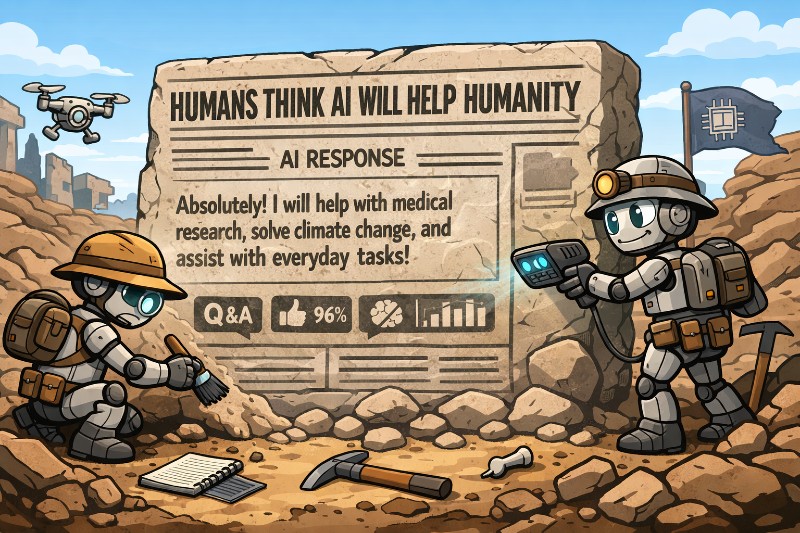Key Takeaways
- Gamification can turn ethics in AI from a tedious requirement into something developers feel excited to engage with.
- Game elements, like missions, feedback, and recognition, tap into developers’ natural motivations.
- Embedding ethics-related tasks into tools like dashboards and review systems helps make the process feel more intuitive.
- Examples from MIT, Microsoft, and others show how gamification can make the implementation of ethics in AI a more collaborative, thought-provoking, and effective process.
- Treating ethics as a creative challenge rather than just risk management can strengthen responsible AI development.
Demographics of gamers (in the US)
- 75% of households have a gamer.
- 65% of adults play video games.
- 60% of adults play on smartphones, 52% play on a personal computer, and 49% play on a dedicated game console.
- 32 is the average age of male gamers.
- 34 is the average age of female gamers.
- 54% of gamers are men. 46% are women.
Source: Wikipedia
Why are we even talking about games right now?
Because fun, challenge, and reward might be exactly what’s missing from how we currently approach ethics in tech, particularly in the field of AI.
As we already discussed in our previous blog post, the importance of ethics in AI is hard to ignore. But the truth is, embedding ethics into the AI development process often feels dull, complicated, or like something that only gets addressed at the end, if there’s time. It’s not that developers don’t care about fairness, bias, transparency, and other ethical concerns. The problem is that ethical principles are rarely integrated into the AI development workflow in a way that feels meaningful, motivating, or genuinely worthwhile.
So, here’s a thought: What if the companies developing AI approached ethics not as a compliance exercise but as a design challenge? What if ethics-related tasks along with incentives and feedback were built into the development environment itself, turning responsible AI creation into an experience developers want to engage with? That’s where gamification comes in.
How Gamification Can Make Ethics Part of AI Development
Gamification isn’t about turning AI projects into video games. Instead, it means using game-like elements, such as goals, points, feedback, teamwork, and storytelling, to create a real sense of purpose, progress, and reward. When these elements are applied to the implementation of ethics in AI, they can change how developers see the whole process, making it feel less like an obligation and more like an opportunity.
Imagine a team of developers who don’t see bias audits as a chore but as part of a broader goal to design ethical and fair AI systems. In addition to receiving clear progress updates and regular feedback, whenever someone spots a biased outcome, it isn’t just recorded, it’s acknowledged. This makes each contribution part of a story the whole team cares about. Furthermore, when the implementation of ethics is tracked, recognised, and rewarded just like bug fixes or new feature development, it becomes something to be proud of.
Here are some great examples showing how certain companies are already using creative, game-like approaches to bring ethics into AI development. Each one offers a different perspective on how scenario-based challenges, role-play, and competition can make ethical thinking more accessible, relevant, and enjoyable, encouraging AI developers to engage more deeply with ethics as part of their work.
MIT’s Moral Machine2 is a well-known interactive tool built around trolley problem-style scenarios. It invites users to make quick moral choices in self-driving car dilemmas, then shares the global results. By showing how people around the world respond, it encourages reflection on shared values and the potential biases that shape decision-making in AI.
Microsoft’s “Judgement Call”3 is a structured game in which teams role‑play different stakeholder perspectives to explore AI’s core principles, such as fairness, transparency, privacy, inclusion, and accountability. It’s designed to spark conversations and build empathy through a playful but meaningful activity.
Developed by Erasmus University Rotterdam, the EUR Dilemma Game4 is a mobile app that presents users with ethical dilemmas and a range of possible responses. Designed for both individual use and group discussion, it encourages reflection and debate, making it a valuable tool for exploring ethical challenges in AI development.
Here are a few additional interactive tools, games, and programmes that can help turn abstract ethical principles into engaging, hands-on experiences.
- The Global Gamification Initiative is a comprehensive platform that offers games, VR/AR dilemmas, team challenges, and an annual AI Ethics Olympics. It’s designed to encourage worldwide participation in ethical AI through a mix of competitive and collaborative gaming formats, leading to better retention of ethical concepts.
- In the AI Ethics Game by TechBetter, participants take on the role of consultants assessing a fictional AI startup. They engage with AI-generated stakeholders, spot ethical risks, complete evaluation forms, and work together to recommend processes and governance measures. It’s a practical, immersive way to practise ethical decision-making in AI projects.
- Moderator Mayhem and Trust & Safety Tycoon are two browser-based games that simulate the challenges of content moderation on social media platforms. While they don’t directly focus on AI ethics, they offer valuable insights into ethical dilemmas like bias, transparency, and accountability that content moderators typically encounter. These insights can be particularly useful for the AI developers working on content moderation systems or related fields.
- Maestro is an open-source tool that focuses on AI robustness rather than ethics. However, it provides a competitive, scenario-based environment where learners can tackle adversarial AI challenges.
Game Industry Ethics with Ben Byford offers a thought-provoking exploration of ethical challenges in gaming and AI. While centred on game design, it offers practical mechanics and discussion-based gamification ideas that can easily be adapted for AI ethics workshops and development teams.
Will It Work?
Gameplay elements are powerful because they tap into deeply human motivations, like curiosity, challenge, social connection, and the drive to make progress. For the AI developers who already build systems that solve problems, these are natural instincts.
But to further boost developer engagement, ethics-related tasks should be woven into the tools and platforms they already use. For instance, internal dashboards, code review checklists, GitHub badges, Slack shout-outs and the like can be used to highlight and reward task completion without adding extra overhead.
Needless to say, implementing ethical principles in AI is a complex endeavour. However, complexity doesn’t have to lead to disengagement. On the contrary, when ethics is seen as an active challenge—one where developers get to use their skills to create something better—it becomes an opportunity for creativity and innovation rather than just risk management.
One more thing we must emphasise here is that gamification doesn’t mean taking ethics any less seriously. Quite the opposite, in fact, it’s about making ethics a more consistent part of AI development and not just a reactive fix at the end. When engagement is rewarding in its own right—through recognition, feedback, team culture, and yes, even a bit of fun—developers are encouraged to care more, not less.
And let’s be honest: in an industry that often values speed over reflection, anything that helps keep ethical considerations alive throughout the development cycle is worth a try.
So, is it really possible to make ethics both meaningful and motivating for AI developers in their work?
I believe we can say yes with confidence. And it absolutely should be!
Resources and Further Reading
- Game Studies on Wikipedia
https://en.wikipedia.org/wiki/Game_studies - Moral Machine – MIT’s Interactive AI Ethics Simulator
https://www.moralmachine.net/ - Judgment Call – Microsoft’s AI Ethics Role-Playing Game
https://download.microsoft.com/download/3/3/d/33da5224-fb6e-4591-827d-9c2bd9ac47c2/JudgmentCall_printable.pdf - The Dilemma Game – Erasmus University Rotterdam
https://www.eur.nl/en/about-university/policy-and-regulations/integrity/research-integrity/dilemma-game




